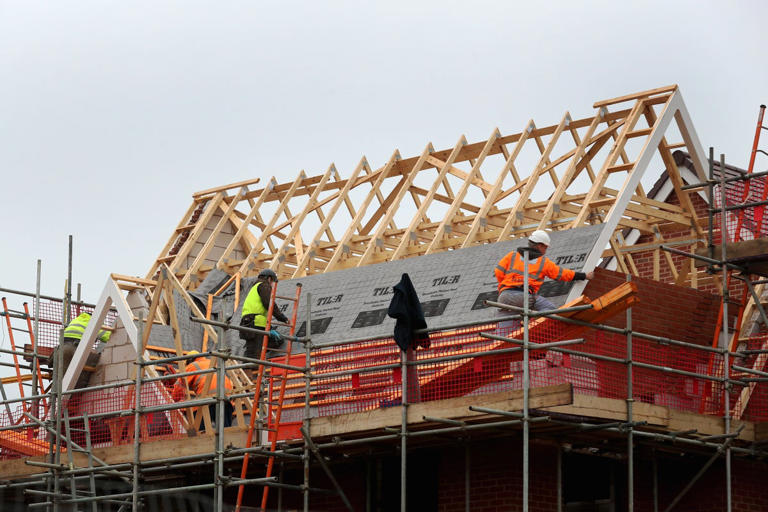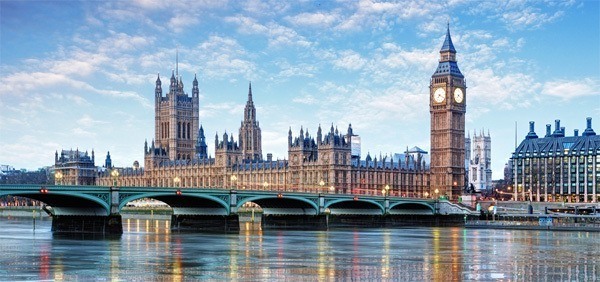The ONS says a lack of Premier League football because of the World Cup contributed to a contraction in output during the final month of 2022.
The economy narrowly avoided recession in the second half of last year, according to early official figures, despite growth going into a sharp reverse in December partly due to the impact of strikes and lack of Premier League football. The Office for National Statistics (ONS) reported that output between October and December was flat at 0%.
A negative figure would have met the technical definition of a recession because the economy contracted over the previous three months to September as the cost of living crisis took a heavy toll on consumer spending. Economic activity has stalled largely as a result of energy-led price pressures on households and businesses - with the Bank of England even predicting in November last year that the economy was already likely in recession. The narrow miss, which is subject to revision by the ONS when more data becomes available, reflects an economy that is stagnating at best in the face of a continuing squeeze on spending power.
Output in December fell by 0.5% compared to the previous month, the ONS said, with contributions to the decline also coming from some early winter snow disruption and strikes including the Royal Mail dispute. Businesses had reported a drop in orders due to delivery uncertainties across the month. The report also pointed to a negative impact from the World Cup, having credited strong domestic bar sales at match screenings for lifting output during November.
ONS director of economic statistics, Darren Morgan, said of the performance: "The economy contracted sharply in December meaning, overall, there was no growth in the economy over the last three months of 2022. In December public services were hit by fewer operations and GP visits, partly due to the impact of strikes, as well as notably lower school attendance. Meanwhile, the break in Premier League football for the World Cup and postal strikes also caused a slowdown. However, these falls were partially offset by a strong month for lawyers, growth in car sales and the cold snap increasing energy generation. Across 2022 as a whole, the economy grew 4%, despite recent squeezes in household incomes, restaurants, bars and travel agents had a strong year. Meanwhile, health and education also began to recover from the effects of the pandemic".
Economists widely believe that recession during the first half of this year is inevitable, with the International Monetary Fund predicting last month that the UK would be the worst performer in the developed world including sanctions-hit Russia. However, others have argued that a recession could be avoided despite continued pressure on budgets from inflation.
The government's critics are urging the chancellor to use his spring budget next month to boost activity, accusing him of taking a miserly approach to the public finances. Unions, for example, argue that public sector pay settlements to avert further strikes would contribute to growth but the Treasury, and Bank of England, is worried that inflation-busting pay deals will stoke inflation.
Jeremy Hunt said in response to the ONS figures: "The fact the UK was the fastest growing economy in the G7 last year, as well as avoiding a recession, shows our economy is more resilient than many feared. However, we are not out of the woods yet, particularly when it comes to inflation. If we stick to our plan to halve inflation this year, we can be confident of having amongst the best prospects for growth of anywhere in Europe."

House market shows signs of ‘finding a new, natural level’ as shockwaves ease after ‘disastrous’ mini-Budget
There were more signs today that the disruption in the housing market was easing after the turmoil that followed the budget proposals of the short-lived government of Liz Truss.
Amid a series of updates from the sector, FTSE 250 housebuilder Redrow said that the market “appears to be finding a new, natural level.” The assessment came as it reported first-half revenue of £1.03 billion, around the record of £1.05 billion hit last year, with profit for the period slipping to £198 million from £203 million.
The Flintshire-based company’s rate of private sales in the period halved, with the drop coming at a time when an unprecedented number of fixed-rate mortgage deals were pulled after the then-chancellor, Kwasi Kwarteng, issued his mini-Budget. Redrow called the measures, which upended the outlook for UK interest rates, “disastrous”, pointing out that they came “during an existing cost of living crisis.”
It meant that “the new homes market found itself in the eye of the storm,” it said, but since the crisis, “consumer confidence has begun to show early signs of returning. Redrow called the start to the second half of the year “encouraging”, with reservation rates recovering.
It added: “Whilst 2023 will be a challenging year as the market resets, early indications are better than anticipated and the market appears to be finding a new, natural level.”
Fellow developer Bellway also noted improving trends, saying it was “encouraged” by better visitor levels and an “improvement in reservations” after “a period of weaker trading through to the end of December” when “ higher mortgage rates and economic uncertainty” hit confidence.
It also pointed out that the “issues” in the housing maket then were “compounded for first-time buyers given the recent expiry of Help-to-Buy and the shortage of affordably priced, higher loan-to-value mortgage products.”
Since then, visitor numbers are “significantly ahead” from the last part of 2022, leaving Bellway noting “grounds for optimism for the spring selling season.”

